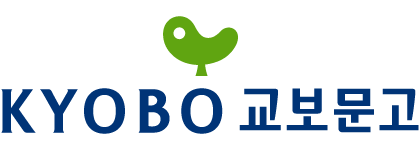

인기 검색어
실시간 검색어
검색가능 서점
도서목록 제공





 |
Language Arts, Grade K (Paperback)스펙트럼 (Spectrum) (지은이) | Carson Dellosa Pub Co Inc
18,400원 | 2011-01-03 | 9780769680002
|
 |
Language Arts, Grade K (Paperback)스펙트럼 (Spectrum) (지은이) | Carson Dellosa Pub Co Inc
17,160원 | 2011-01-03 | 9780769680002
|
 |
Spectrum Language Arts Workbook, Grade K (Paperback)스펙트럼 (Spectrum) (지은이) | Spectrum
19,500원 | 2024-03-14 | 9781483871349
|
 |
Progress Language Arts G-K Teacher's Guide | Sadlier-Oxford
60,000원 | 2015-01-01 | 9781421730608
|
 |
Progress Language Arts G-K Teacher's Guide | Sadlier-Oxford
60,000원 | 2015-01-01 | 9781421730608
|
 |
Basic Language Arts G.a.m.e.s. Grade K (Paperback)Lynette Pyne (지은이) | Carson Dellosa Publishing Company
40,230원 | 2006-08-31 | 9781594414770
|
 |
Tinkeractive Workbooks: Pre-K English Language Arts (Paperback)Megan Hewes Butler, Odd Dot (지은이), 팻 루이스 (Pat Lewis) (그림) | Odd Dot
19,800원 | 2020-12-29 | 9781250208118
|
 |
Progress Language Arts G-K SB (Student Book) | Sadlier-Oxford
42,000원 | 2015-01-01 | 9781421730509
|
 |
Progress Language Arts G-K SB (Student Book) | Sadlier-Oxford
42,000원 | 2015-01-01 | 9781421730509
|
 |
Spectrum Language Arts, Grade K: Volume 10 (Paperback)스펙트럼 (Spectrum) (지은이) | Spectrum
15,500원 | 2014-08-15 | 9781483812045
|
 |
Spectrum Language Arts, Grade K: Volume 10 (Paperback)스펙트럼 (Spectrum) (지은이) | Spectrum
15,500원 | 2014-08-15 | 9781483812045
|
 |
McDonald: Faci Unde Thro Arts Inte K (Paperback)Nan L. Mcdonald (지은이) | Pearson College Div
149,470원 | 2009-08-01 | 9780136138136
|
 |
McGraw Hill Language Arts Grade K: Teacher's Guide | McGraw-Hill
253,000원 | 2005-07-01 | 9780022455651
|
 |
Common Core Language Arts 4 Today, Grade K (Paperback)Jennifer Taylor Geck (지은이) | Carson Dellosa Pub Co Inc
17,480원 | 2013-05-01 | 9781624426032
|
 |
Integrating the Performing Arts in Grades K-5 (Paperback)Rekha S. Rajan (지은이) | Sage Pubns
71,410원 | 2012-05-23 | 9781452203959
|
 |
McGraw Hill Language Arts Grade K: Pupil Edition (Paperback)McGraw-Hill 편집부 (지은이) | McGraw-Hill
44,000원 | 2005-07-01 | 9780022455569
|
 |
McGraw Hill Language Arts Grade K: Workbook Teacher's GuideMcGraw-Hill Staff (지은이) | McGraw-Hill
50,000원 | 2005-07-01 | 9780022447199
|
 |
Writing and Language Arts, Writer's Workbook, Level K (Paperback)Jean Wallace Gillet (지은이) | Glencoe/McGraw-Hill School Pub Co
34,000원 | 2002-09-05 | 9780075796350
|
 |
SRA Writing and Language Arts Grade K: Teacher's EditionJean Wallace Gillet, Charles Temple, D. James (지은이) | SRA
72,000원 | 2002-09-01 | 9780075796541
|
 |
Caribbean Primary Language Arts Project: Grade K Reader (Paperback)St Lucia Ministry of Education (지은이) | MacMillan Education
16,180원 | 2000-08-14 | 9780333773741
|